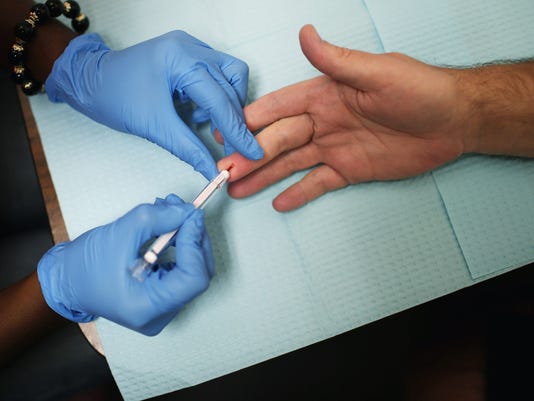The number of men who have sex with men testing for HIV may be rising, but those who should be testing more often are not doing so. A study by the Burnet Institute titled, ‘Seek Test Treat’ Lessons from Australia: A Study of HIV Patterns from a Cohort of Men Who Have Sex With Men, found that testing frequency was “suboptimal”, with only approximately half returning to test within 12 months, which is the recommended minimum.

The study was conducted from 2007-2013 and included 46,060 tests from 17,904 men, with results also suggesting that those who should be testing more than once a year were not doing so.
“If they’re not testing within the year, they’re not testing every three months,” Lead Research on the study and PhD candidate, Ms Anna Wilkinson, told MCV.
Ms Wilkinson also said that data to be published later in the year suggested this to be correct. It is recommended that men who have multiple partners or have condomless sex should be tested for STIs and HIV every three months. The data in the study also found those reporting condomless sex were no more likely to return and test annually than those who use condoms.
Dr Mark Stoové of the Burnet Institute claims that it was important men who have sex with men have regular tests to avoid transmission of STIs and HIV. He said anyone who has unprotected sex even once, should be testing more than every 12 months.
“If they don’t test again for 12 months, they spend that time in the community putting their partners at risk. If someone presents regularly, that time is reduced and allows people to practice risk reduction strategies,” he said.
Dr Stoové added:
“There would be high caseload clinicians who would communicate that to their patients, but the message needs to get out into the community that testing regularly is really going to be a fundamental mainstay of HIV and STI prevention in the future.
“Especially with a period with social marketing, we really need to innovate this space to get this message out,” he said.
VAC CEO Simon Ruth told MCV they were about to launch a new campaign that focused on seasonal testing and that the ‘Seek Test Treat’ study was conducted before the introduction of their rapid testing service, PRONTO, and their Ending HIV campaign.
“We will continue the practice of exploring new ways in which we can make testing even more accessible and effective at reaching MSM in Melbourne and Victoria as a whole,” he said.
Ruth added that messaging had also changed since the results, and added that “campaign messaging is only part of the factors at play and so we have continued to adapt our messaging in conjunction with testing service provision, outreach, and peer education.”
